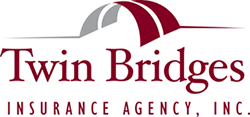The Affordable Care Act was designed to give every American, access to health care coverage without worrying about being denied care because of pre-existing conditions, limits on coverage, or termination because you used your policy too much. There is still a lot of confusion about terminology, coverage specifics and what you can expect from your health insurance and how the payment system will work. As your independent agent, we’re here to clarify things for you, and to make sure you have a good understanding of how your coverage works.
When you see your doctor, the office files a claim with your insurance company. The insurance company pays a percentage of the cost of services you received. That percentage is subtracted from the amount the insurance company allows for that particular service. Whatever is left after your insurance company pays their part, which is typically 80 percent, is the coinsurance, or amount you have to pay out-of-pocket. If you have a deductible, the insurance company subtracts that amount from what they pay, so you’ll have to pay the deductible and the percentage.
In New York state, however, your insurance company can’t charge you a co-payment, or expect you to pay a deductible when you see your doctor for routine preventive care services. The insurance company will pay whatever percentage they allow, and for these services only, you won’t have to pay anything.
New York also has a cost-sharing program to help people whose income falls below a certain threshold. When you apply or applied for medical insurance through the state’s sign-up program, you can find out if you qualify for help from the state.
If you have Medicare, and you have a supplement to your Medicare policy, your supplement may cover what Medicare doesn’t pay. If your doctor bills Medicare directly and accepts direct payment from Medicare, then you can’t be charged a co-payment for what Medicare doesn’t cover. If you have Medicare and also have prescription drug coverage through Medicare, you are responsible for the amount that your drug insurance doesn’t pay for your medicine. The amount you pay is also called coinsurance, which is the same as a co-payment.
The coinsurance does not affect your health insurance when you go to the doctor for things that aren’t considered basic preventive care because you pay nothing for these visits.
Contact your independent agent in one of our Schenectady or Saratoga Springs, New York offices to compare prices on health insurance coverage for you, and your family.








 Click to Call
Click to Call Get Directions
Get Directions